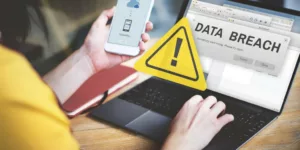In 2022, one of the biggest threats in terms of cyber security is keeping your data safe. There are many stakeholders with a vested interest in the data and browsing habits of their clients. Therefore, if you want to keep your data safe, you need to encrypt it. One of the most convenient ways to do so is by using a VPN. In this article, you can learn more about how VPNs can help in data protection.
A virtual private network (VPN) is a dedicated server that monitors and secures all of your data. VPN services often offer hundreds or even thousands of servers located across the globe. When one device is connected to a VPN, third parties with whom the device communicates online see only the VPN server’s IP address, while the device’s IP address is concealed.
VPNs may be advantageous in a variety of situations. They may be used, for example, to access material that is not accessible in a certain location. Additionally, they may be used to conceal surfing activity from your internet service provider. They may also assist in securing data and allowing for more control over data access.
A virtual private network (VPN) is a dedicated server that monitors and secures all of your data. VPN services often offer hundreds or even thousands of servers located across the globe. When one device is connected to a VPN, third parties with whom the device communicates online see only the VPN server’s IP address, while the device’s IP address is concealed.
How VPNs Help with SaaS Applications
Numerous firms host their most important SaaS tools in a cloud infrastructure, which is among the most prevalent strategies for enhancing SaaS security controls. When businesses exercise control over how their workers use company resources, they mitigate the danger of a hack. However, what can you do when you have workers that work remotely outside your workplace?
And what should you do if you have a large number of SaaS applications and your staff is experiencing difficulty memorizing all of their unique usernames and passwords? To facilitate access, you may utilize a VPN to grant remote access to required services and a directory provider to simplify authentication.
A VPN enables safe remote access to the private infrastructure that contains all of the SaaS tools required for workers to perform their tasks. Is an individual working at home on a day-to-day basis? There is no issue. Are you attending a seminar? This process is simple. Conducting a sales presentation at a prospective client’s place of business? It’s never been more straightforward!
Regardless of where workers are located or when they want to connect to the network, a VPN enables them to obtain the data they need, precisely when they require it, while also maintaining the security of your system. Additionally, you may quickly implement multi-factor verification, which requires users to input their login and passcode in addition to a key produced via a device, such as a cellphone.
This guarantees that the connection is only accessible to authenticated users. After individuals log in to the VPN server, they have access to SaaS apps, often through additional unique sets of passwords per application.
Final Thoughts
If you want to learn more about how integrating SaaS will benefit your business, and why SaaS customer support is more important than ever, check out the linked blog. In the meantime, you can take some major steps to secure your data simply by using a VPN to encrypt your browsing history!
Written by Roman Daneghyan








